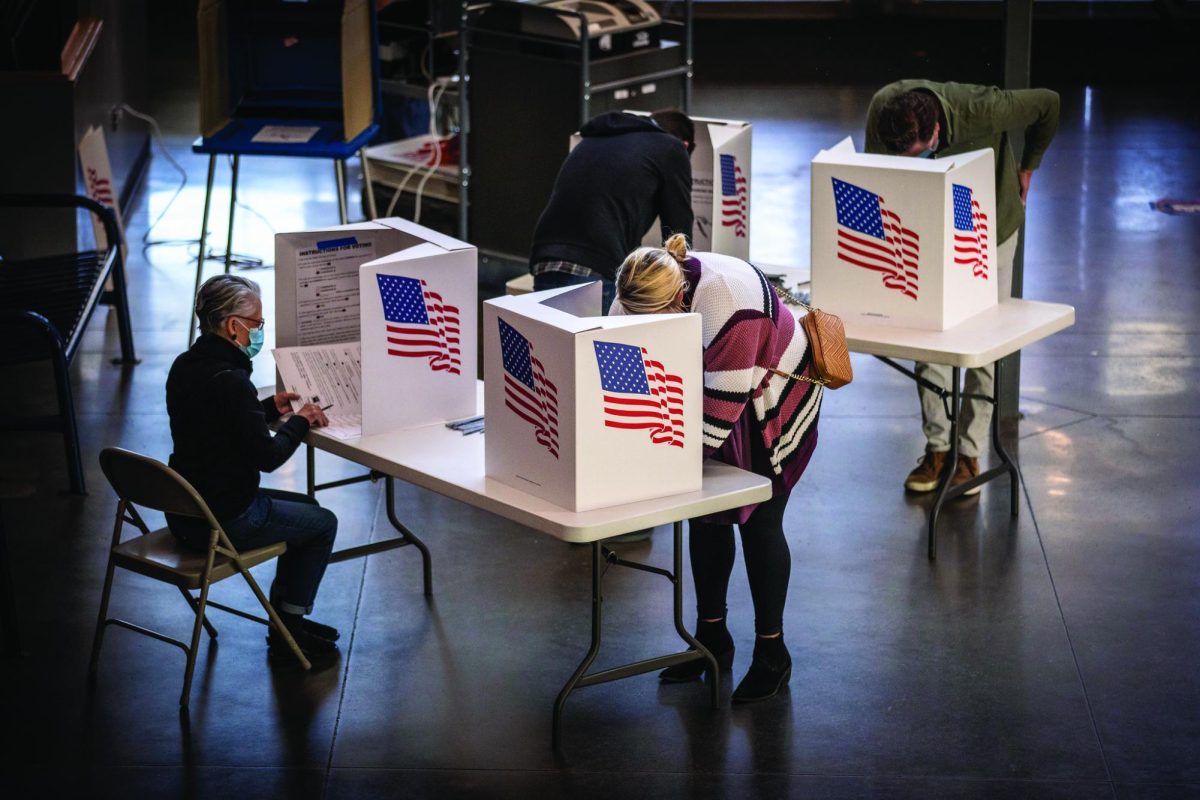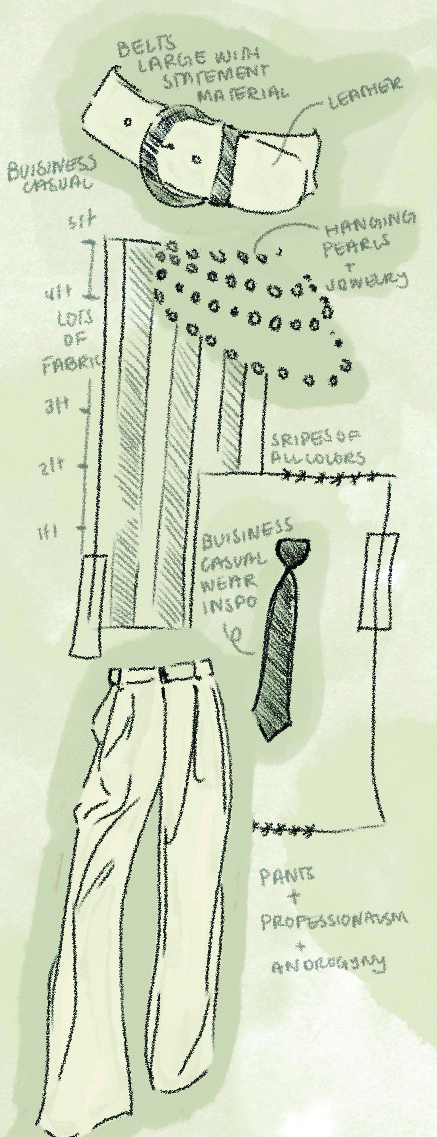
By: Isabel ’14, Ashley ’16 and Alanna ’16
Before coming to Marlborough in 7th grade, Victoria ’15 had a negative experience with her many tutors in elementary school. Instead of helping Victoria, her tutors did her work for her. At Marlborough, she discovered that using her teachers as resources was more effective and more beneficial for her in the long run than seeking help from private tutors.
Marlborough offers many resources for its students, and faculty make themselves available to meet with students to go over what they learned in class. If a student wants even more help, she can take advantage of peer tutoring on campus. Many students do not take full advantage of Marlborough’s resources and instead turn to tutors. Of 455 students polled in a survey conducted by the School four years ago, 120 students (27%) claimed to have received tutoring in at least one class, usually math.
Why do students use tutors when teachers are available to meet with students? What do teachers think about tutors?
THE SCHOOL’S STANCE
Although Marlborough does not have an official policy regarding which resources students can and cannot use to receive help in a class, most faculty and administrators interviewed stressed that students should seek help from people within the School community before hiring a tutor from outside Marlborough.
Assistant Head of School and Head of Upper School Laura Hotchkiss ’86 said that though she is often approached by parents who think their daughter needs extra support, in most cases the teacher and student meet to try to address the issue before turning to a tutor. She added that sometimes students do not fully utilize the resources available to them at Marlborough because getting a tutor seems like an easier solution.
“My opinion is that before a student gets a tutor, they need to spend time and effort with their teacher…Teachers are pretty accessible,” Hotchkiss said.
Mathematics instructor John Frank agreed, elaborating that students may become dependent on the tutor for information and, as a result, stop asking questions in class. He added that some students may even tune out their actual instructor, knowing that they’ll get specialized attention from a tutor.
“[Students] just go, ‘I’ll just ask my tutor about this later’, but the ‘later’ never really comes. It doesn’t work very well. It really backfires. So a kid [who] wants to learn with the tutor can get a great benefit, but a kid who wants to get a higher grade because of the tutor may get a lower grade because they are just not listening in class anymore,” Frank said.
Hotchkiss added that students who are not invested in a class may turn to a tutor as a “quick fix,” a way to cram for tomorrow’s test but not necessarily absorb the material.
Frank said that because teachers and tutors rarely communicate directly with each other, a student may learn topics using different methods or in a different order than her peers.
“I think it’s a pretty rare instance when the writer of the tests who is doing the lessons isn’t a better source of information about the class than [a] tutor who’s there for an hour and going to the next kid any minute,” Frank said.
As an alternative to outside tutors, many teachers recommend that their students apply for a California Scholarship Federation (CSF) tutor. CSF is a state-wide peer tutoring program that is organized at Marlborough by mathematics instructor Jennifer Uribe. After the fall of their sophomore year at Marlborough, students may be invited to tutor younger students in all five core subjects: science, math, history, English, and foreign language, as well as in organization and study skills.
Frank said that whenever parents ask him what their daughters should do to perform better in his classes, he always recommends a CSF tutor but cautions that the pairing will only work if both the tutor and the student are invested in the student’s progress. There is always the risk that the student assigned to tutor the underclassman will not entirely remember the subject she is teaching and may only be participating in the CSF program to embellish her resume.
“I love that program when it works, but it’s a big disappointment when it doesn’t, and that’s always going to be that way. You can’t look at a kid and see if they are going to follow through,” Frank said.
According to Hotchkiss, the School has considered using the CSF program and other teachers as a sort of “in house” tutoring service, so that students would have a resource available to them during every period of the day. When the School has tested an “in house” tutoring system in the past, however, students did not take advantage of it.
“So let’s say I was free at E period, I would be sitting in my office at E period, and any student who needed help could come and talk to me. I would have nobody come and talk to me. So what we found is that students preferred making the appointment and finding the time to meet with their teacher,” Hotchkiss said.
HOW DO TUTORS HELP?
Some members of the School community question tutors’ effectiveness, while others maintain that tutors provide valuable resources that the School cannot always offer.
Some students said that they prefer using the School’s resources to those offered by a tutor. Victoria, for example, who had a tutor when she was younger, said that she finds asking teachers for help to be more effective.
“I have been fortunate enough to have the really good teachers at Marlborough. They all stick with it and make sure I understand everything, and if I don’t, I will go to another teacher that teaches that same class and ask them for help too,” she said.
Several parents, such as Courtney Caverly, mother of Gillian ’18, said that they find relying on a teacher more useful for their daughters.
“[My daughter] also seeks out help from her teachers when she needs it, so she kind of knows how to get the help she needs rather than just relying on someone coming over,” Caverly said.
Frank believes that tutoring is beneficial for some students, but a better option is for students to seek help from their classmates.
Uribe added that students are ultimately responsible for doing their work and understanding the material, and they should play a role in the effectiveness of tutoring.
“[You] should never use your tutor as the person you do your homework with,” Uribe said.
Although math tutor Kate Gapacho promotes the use of tutoring, she also states that sometimes a student can have a negative experience with a tutor.
“Part of the problem is that there are tutors out there who just put a Band-Aid on the problem and don’t really help students learn the skills to become independent learners. But that doesn’t mean that there aren’t great tutors who are making a difference in students’ lives,” Gapacho said.
Gapacho explained that some students who really benefit from tutoring may have learning styles that are not compatible with a particular teacher’s methods.
“Even with great schools like Marlborough, each student is still an individual. Each person learns in different ways,” Gapacho said.
She went on to point out that students in a classroom environment might be uncomfortable asking questions, and even if they do ask questions, they may not always understand the teacher’s answer.
“I know a lot of my students have told me that they will ask a question, and the teacher just repeats exactly what he or she said. Because of this, they are unable to really understand the material or concept,” Gapacho said.
Additionally, some students tend to have trouble finding the time in the day to meet with their teachers as much as they would like.
“I do go to my teacher, but typically I don’t have enough free time during the school day to meet with my teachers as much as I would like,” Ella ’16 said.
Ella, who works with a tutor, said that her tutor has helped clarify the material she learns in class.
“She gives me practice problems before I take tests and she helps me understand what we are learning [in class] better,” she explained.
ADDRESSING THE ETHICS
Tutoring raises ethical questions, particularly about whether or not private tutors grant unfair advantages to wealthier students and whether or not they help students pull ahead rather than draw even with their classmates.
A session with one of the professional tutors at A List Tutoring, a tutoring company that many Marlborough students use, can cost anywhere from $175 to $300.
Uribe explained that she tries to avoid recommending paid tutors as much as she can because she knows that not all Marlborough families can afford the expense.
“I don’t like my students to have to pay money to get help outside of my class if I can avoid it…I know that math tutors specifically can be really expensive,” Uribe said.
Alyx ’15 said that Marlborough does a good job mediating the cost of tutors by sponsoring the CSF program and wonders why more students do not take advantage of it.
“I am surprised that more people don’t use CSF tutors, and I think more people should because these tutors have already taken these particular classes and might have specific insights,” Alyx said.
Uribe said she believes that CSF tutors are a great option for many students because they are free and can offer similar help to a paid tutor.
“Are [CSF tutors] going to be as qualified as a paid tutor? Well, no, because they haven’t finished every level of math ever and they haven’t had hours and hours of training to tutor someone. But I don’t think you always need to have all of that,” Uribe explained.
Hotchkiss said that she worries about the fairness of tutoring.
“I think [fairness] is the absolute dilemma with [tutoring]. Some people can pay, and some people can’t pay and some people have the time for a tutor and some people don’t have time, ” Hotchkiss said.
However, she went on to say that the dilemma does not downplay the help a student can get from tutoring.
“Do I think sometimes [tutoring] is unfair? Probably. But do I also think there are some moments when a student really does need that extra intervention to really perform and master the material? Yes, I think that is true too. I think it’s a little bit situational,” Hotchkiss said.
Gapacho said she thinks that tutors can help students with certain disadvantages catch up to their peers.
“[The student] might have learning disabilities, or there might be a student who is playing a sport or is involved in a very time consuming extracurricular activity so they might have less time to devote to school, or there might be a student whose brain might just process information differently than another student’s brain, and they might need to hear it from someone else for it to click,” Gapacho said.
Hotchkiss said that, at times, a tutor may help a student so much that the work the student turns in is no longer truly her own.
“Teachers will sometimes come to me and say, ‘I’m concerned because this essay doesn’t sound like the student’s essay’…It could turn into an honor code violation. It could just turn into a dialogue. It could turn into there needs to be a little clarification about the role of a tutor. Maybe that student needs to rewrite that paper, or the teacher or I would have a conversation with the parent like, ‘Let’s be careful about how much help someone is getting,’” Hotchkiss said.












